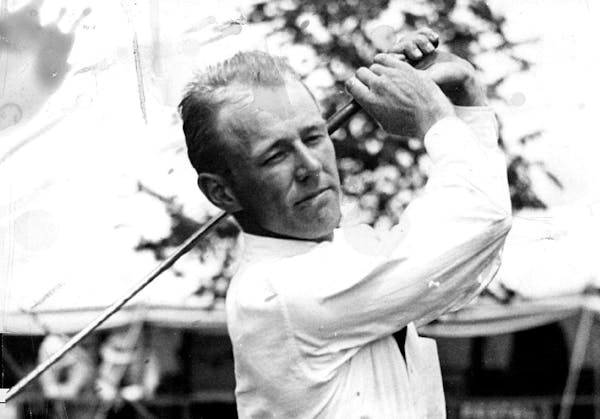Bernie Bierman said the key to the success of his football teams was simple.
Bierman told the Minneapolis Star, "There's nothing secret about the results to be obtained with blocking, tackling and hard charging. That's fundamental."
Bierman was born in Springfield and lived in Detroit Lakes and Litchfield before enrolling at the University of Minnesota. As a fullback for Coach Henry Williams, Bierman was first-team All-Big Ten and first-team All-America in 1915.
After graduating from the University, he began his college coaching career at Montana in 1919. After coaching Tulane to the Rose Bowl following the 1931 season, Bierman became the coach of his alma mater.
Stressing fundamentals, Bierman, known as "The Silver Fox" and "The Grey Eagle," coached the Gophers to five national championships and a 63-12-5 record in his first 10 seasons in Minnesota.
During World War II, Bierman spent three years in the military before returning to Minnesota in 1945. He coached the Gophers through 1950. During his 16 seasons as the Gophers coach, the Gophers won seven Big Ten titles and Bierman coached 13 consensus All-Americas. His overall record at Minnesota was 93-35-6.
His career record, which included stints at Montana, Mississippi State and Tulane, was 153-65-12.
Ed Widseth, a two-time All-America for the Gophers in 1935 and 1936, told the Minneapolis Tribune in 1977, "He (Bierman) was a different type of coach. There wasn't anything emotional about Bernie. He'd never ask you to die for dear old Minnesota. There weren't any frills — it was all work. He just coached fundamental football and it turned out to be winning football. He'll never be forgotten."
On offense, his teams ran a single-wing football, and, according to the College Football Hall of Fame, Bierman "was often chastised for running a 'dull' offense." In response, Bierman said, "If I found that four or five plays were doing the job, we stuck with them. Still, we probably had more plays than our opponents. I always figured that ball control with good execution is the best thing you can have."
In 1955, he was elected to the College Football of Hall of Fame. In 1958, the American Football Coaches Association presented Bierman with the Amos Alonzo Stagg award. The annual award was presented to those, "whose services have been outstanding in the advancement of the best interests of football."
BERNIE BIERMAN
Class: 1958.
Sport: Football.
Team: Gophers.

Want to share info with the Star Tribune? How to do it securely

A Minnesota field guide to snow shovels: Which one's best?
Sign up for Star Tribune newsletters

